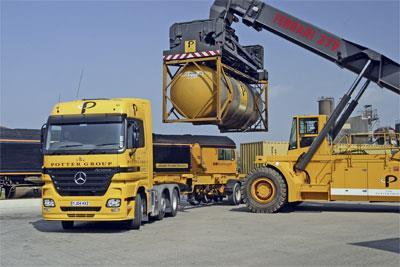
The Labour Party has told Motortransport.co.uk it cannot comment on how its plans to change the rail franchising system might affect rail freight services, if it were to come to power after the general election in May.
Labour’s statement followed comments in February by shadow transport secretary Michael Dugher, who said that privatisation of the railways had been “a disaster” and promised to put the whole rail franchising model “in the bin”.
Asked how these plans might impact on the provision of rail freight in the UK, a spokesman for the Labour Party said: “As we set out at our National Policy Forum in July 2014, we are clear that the existing franchising system, which led to the West Coast fiasco, is not fit for purpose. We will do a full review of the system aimed at safeguarding taxpayer and passenger interest and put in place a model that is fit for purpose.
“We have also said that we will learn the lessons of East Coast, where we have seen the benefits of a not-for-dividend operator running rail lines, by legislating to allow a public sector operator to take on new lines. This will allow a public sector operator to challenge the private sector for routes on a level playing field… as franchises expire.”
The spokesman said Labour “understands the vital role effective and efficient freight network play in supporting the type of economic growth the UK needs” and added that it supported long-term investment in both the strategic road and rail network.
But he declined to outline what this might mean for rail freight in practice, stating only: “We will do a full review of the existing franchise system when we enter government. I can’t pre-determine any outcomes of that.”
Matthew Lamb, MD of rail freight terminal operator Potter Logistics, said it was not clear just why a review was needed. “In terms of procurement, it would appear to me that between Schenker, GB Railfreight, DRS and Freightliner, there is a proper competitive market there. Clearly, there is no harm in reviewing the set-up, but fundamentally I don’t believe the rail freight market is broken.”
There are clearly capacity issues on the network, admitted Lamb, but that is a different issue. “The capacity issue doesn’t require a review from government, it just requires government to commit to an infrastructure expenditure programme similar to the one they’ve had for the last five years,” he said.














